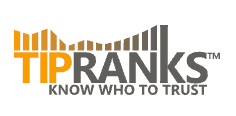










pitchbook
pitchbook reviews & alternatives 2025,feature,pros and cons,price
brief introduction
PitchBook is a leading financial data and software provider specializing in private capital markets, including private equity, venture capital, and mergers and acquisitions (M&A). It offers comprehensive data, analytics, and research tools to help professionals make informed decisions in the investment landscape.
pitchbook official site: https://pitchbook.com/

Key Features:
- Private Market Data: Tracks private equity, venture capital, and M&A activity globally.
- Company Profiles: Detailed information on private and public companies, including financials and funding history.
- Deal Activity: Insights into investments, exits, and fundraising trends.
- Investor Profiles: Data on institutional investors, limited partners (LPs), and general partners (GPs).
- Analytics Tools: Advanced tools for market analysis, benchmarking, and performance tracking.
- Research Reports: Industry-specific insights and trends.

Users:
- Private equity and venture capital firms.
- Investment banks and corporate advisors.
- Limited partners (LPs) and institutional investors.
- Consultants and corporate development teams.
Benefits:
- Comprehensive Data: Access to detailed private market information.
- Efficiency: Streamlines deal sourcing, due diligence, and market analysis.
- Insights: Provides actionable intelligence for strategic decision-making.
PitchBook is widely used by professionals in finance and investment to navigate the complexities of private markets.
As of 2023, I cannot provide specific details for 2025, but I can offer a general overview of PitchBook based on its current features, reviews, alternatives, pros and cons, and pricing. This information can help you anticipate trends and evaluate its potential standing in 2025.

PitchBook Reviews (General Sentiment as of 2023)
- Positive Feedback:
- Highly regarded for its comprehensive private market data.
- User-friendly interface and powerful analytics tools.
- Valuable for deal sourcing, due diligence, and market research.
- Strong customer support and regular updates.
- Criticisms:
- High cost, making it less accessible for smaller firms or individual users.
- Steep learning curve for new users.
- Limited coverage in emerging markets compared to developed regions.
PitchBook Features (2023)
- Private Market Data: Covers private equity, venture capital, and M&A activity.
- Company and Investor Profiles: Detailed insights into companies, funds, and investors.
- Deal Sourcing: Tools to identify investment opportunities.
- Analytics and Benchmarking: Performance tracking and market trend analysis.
- Research Reports: Industry-specific insights and forecasts.
- Customizable Dashboards: Tailored views for specific user needs.
Pros and Cons of PitchBook
| Pros | Cons |
|———————————————–|———————————————–|
| Comprehensive private market data | Expensive for small firms or individuals |
| User-friendly interface | Steep learning curve for new users |
| Strong analytics and benchmarking tools | Limited coverage in emerging markets |
| Regular updates and reliable customer support | Requires time to fully leverage all features |
| Valuable for deal sourcing and due diligence | |
PitchBook Pricing (2023)
- PitchBook does not publicly disclose its pricing. Costs are typically customized based on:
- The size of the organization.
- The number of users.
- The level of access required (e.g., basic vs. premium features).
- Generally, PitchBook is considered a premium tool, with pricing often starting in the $10,000+ per year range for smaller firms and scaling up significantly for enterprise-level access.
Alternatives to PitchBook (2023)
Here are some notable alternatives, which may evolve by 2025:
- CB Insights:
- Focuses on venture capital, startups, and emerging technologies.
- Strong AI-driven insights and trend analysis.
- More affordable than PitchBook.
- Crunchbase:
- Tracks startups, investors, and funding rounds.
- User-friendly and cost-effective for smaller teams.
- Less comprehensive for private equity and M&A.
- Preqin:
- Specializes in alternative asset data (private equity, hedge funds, real estate).
- Strong LP and GP data coverage.
- Comparable pricing to PitchBook.
- Capital IQ (by S&P Global):
- Focuses on public and private company data, M&A, and capital markets.
- Strong integration with other S&P Global tools.
- Higher cost, targeting enterprise clients.
- Dealroom:
- Tracks startups, venture capital, and innovation ecosystems.
- Strong focus on European markets.
- More affordable than PitchBook.
- PrivCo:
- Provides private company financial data.
- Less comprehensive than PitchBook but more affordable.
Anticipated Trends for 2025
- Increased AI Integration: Tools like PitchBook and its alternatives may leverage AI for predictive analytics and trend forecasting.
- Expanded Coverage: Greater focus on emerging markets and niche sectors.
- Competitive Pricing: More flexible pricing models to cater to smaller firms and individual users.
- Enhanced User Experience: Improved interfaces and customization options.
Conclusion
PitchBook remains a top choice for private market data and analytics, but its high cost and complexity may drive users to explore alternatives like CB Insights, Crunchbase, or Preqin. By 2025, expect advancements in AI, broader market coverage, and more competitive pricing across the industry. Always evaluate your specific needs and budget when choosing a platform.







